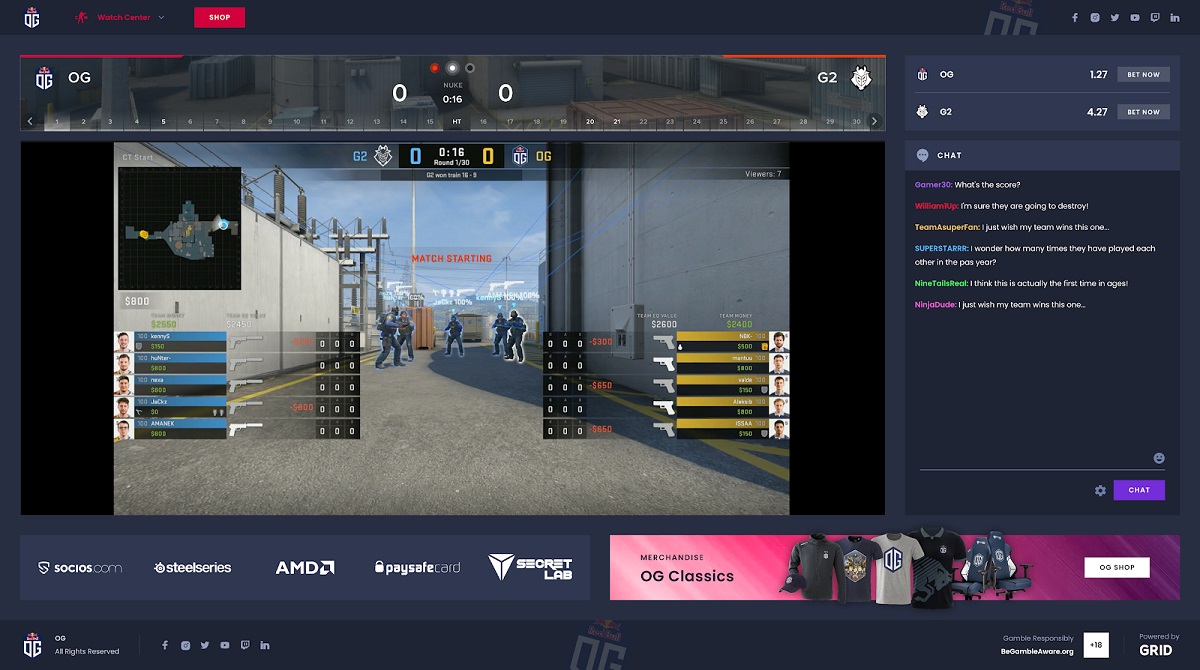Grid Esports has raised $10 million in a round of funding to provide game companies and players with better competitive data.
The backers include Alinea Capital, Bumble Ventures, Tar Heel Capital Pathfinder, Agileo Ventures, and NFL player JuJu Smith-Schuster, and the money will help the Berlin-based company grow its data platform and expand its U.S. presence. Previously, the company raised $1.6 million, and now it has raised $11.6 million to date.

Unlock premium content and VIP community perks with GB M A X!
Join now to enjoy our free and premium membership perks.
![]()

![]()